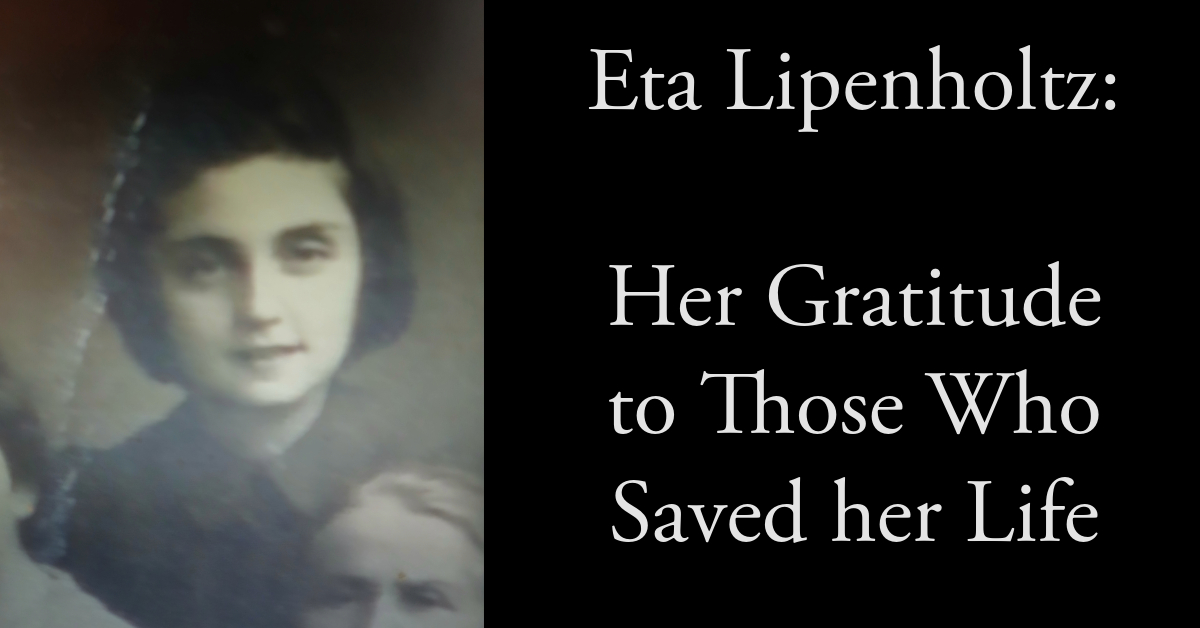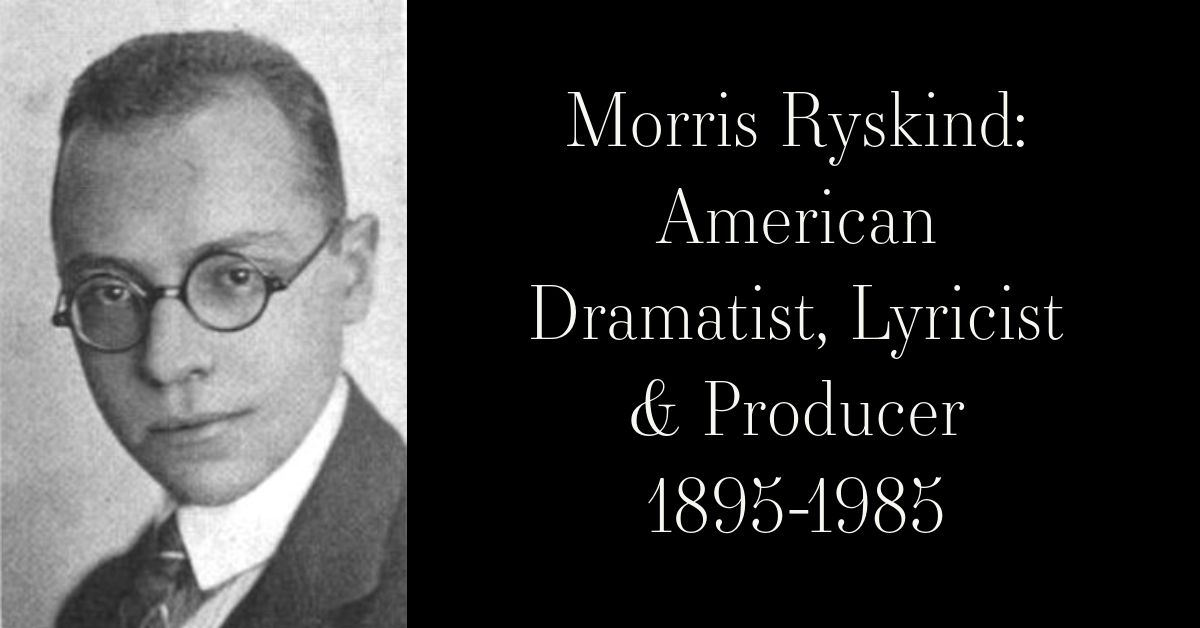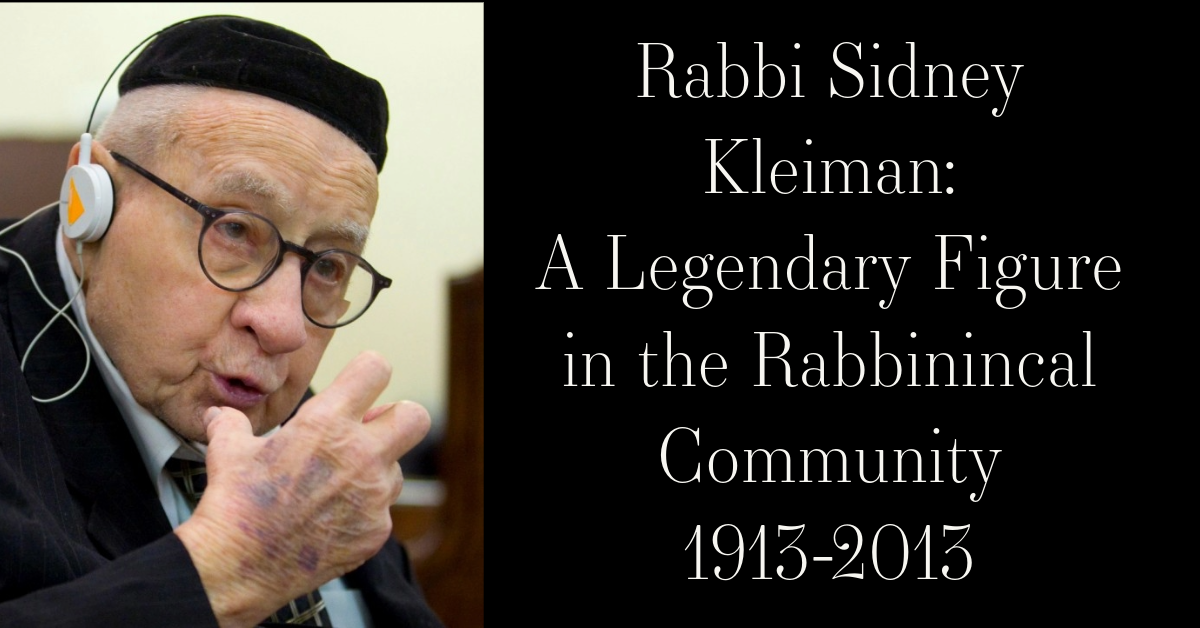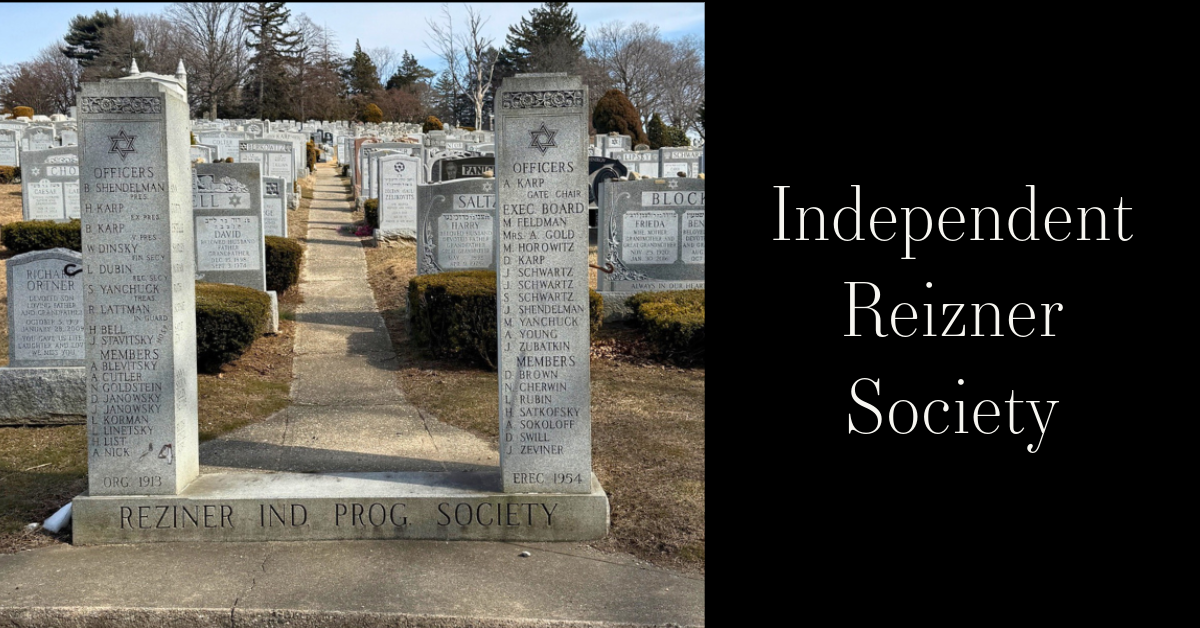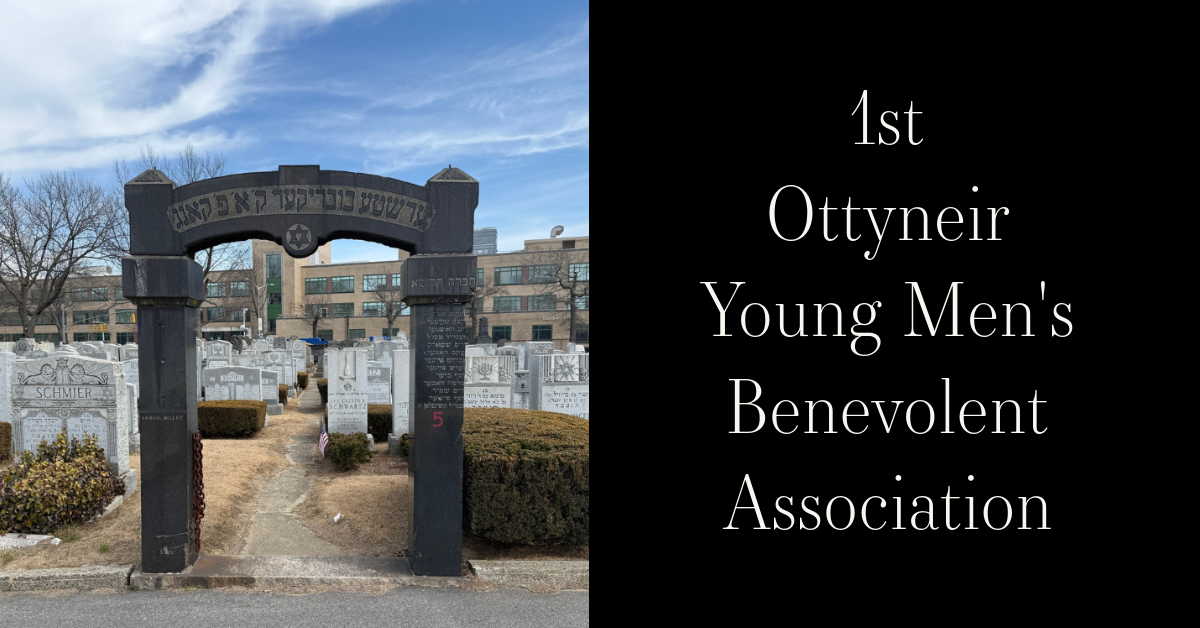Eta Lipenholtz: Her Gratitude to Those Who Saved Her Life

Eta Lipenholtz was born Eta Joffe on November 19, 1926 in Vilna, Poland. Eta lived with her parents, Abraham and Rachel, her older sister, Nina, Kayla (the Jewish maid) and the family dog, Alma in a 4-bedroom apartment. Eta’s father was an affluent store owner and worked in a shop that sold porcelain, stone and silverware. Eta had a nice life in Vilna and also enjoyed going to their summer home accompanied by the maid while Rachel remained in the store with Abraham. Eta enjoyed camping and swimming.
Abraham and Rachel attended The Great Synagogue of Vilna every Shabbos. Eta noted that every single shul except the Great Synagogue was destroyed by the Nazi’s. The Great Synagogue is the only shul that until this day, still stands in Vina. In the Lipenholtz home, there was Challah and Kiddush on Shabbos and her parents conversed in Yiddish. Eta attended private Jewish schools where the Polish language was spoken.
Abraham Lipenholtz was one of the leaders in the Zionist Organization. On one occasion, Abraham picked up Zev Jabotinsky from the airport and took him to his hotel. Abraham was on the black list. He had a hard time when the soviets came and starting deporting people to Siberia.

Eta remembers one incident when soldiers came to her neighborhood and broke into Abraham’s store while her frightened parents hid in the woods. The soldiers caught Eta and paraded her through the streets while pointing a gun at her head. The soldiers trashed the store and left it in shambles. Later, they sent trucks to haul out all of the merchandise.
The Lipenholtz store was located next door to a bakery. Several years ago, several Polish students falsely accused the Jews of murdering one of their own. Every year that passes since that incident is commemorated by the Poles when they start a bloody Pogrom during which time they beat up innocent Jews. The last pogrom that Eta remembers is when the Poles forced their way into the Jewish bakery after the bakers had just removed a large bar mitzva challah from the oven. The angry mob grabbed the challah, ran outside and hurled it through the window of Abraham’s store breaking every piece of porcelain and almost everything else in the shop. Abraham ran out the back door of the store. The Eta and her classmates were not released until dark once the Poles retreated because the principal feared for the children’s safety. The Polish students became enraged that there were relatively few people in the street to menace. Therefore, they grabbed a random Jew, dragged him up the stairs of a building and then heartlessly hurled him off of a balcony and down to his death. Eta stated that she watched all of these attacks.

Abraham was involved in a project to illegally send students to Israel. He was in the process of sending away his last group when the Soviets grabbed these students and sent them all to Siberia.
The family had a radio so they knew when the war started and that the Germans were coming. On September 9, 1941, the Jews were forced to give their furs as well as all of their money to the German cause. Further laws were implemented such as it becoming a crime for Jews to walk on the sidewalk. They were only allowed to walk on the gutter. A curfew was put into place whereby Jews had to be home before dark. Jews had to commence wearing yellow stars on their clothes. When Eta ventured out wearing a star, she saw gentiles and Poles pointing at her. Eta felt very uncomfortable going outside wearing the yellow star. She told her family “I’ll never out; I’ll only stay home.” One day Eta’s sister Mina kept encouraging her to pay no attention to the people outside. After a while, Eta agreed to go out with her sister and thereafter it became easier for Eta go out.

Eta described how the Germans ordered the Lithuanian police to pick Jewish men randomly in the street and bring them to the precinct. Then took these men away in trucks. The Germans assuaged the families fears by assuring them that the men were just being taken to work camps. Eta later discovered that this had been a ruse by the Germans to get the men to go willingly. The trucks actually delivered the men to the Ponary forest where they were forced to dig their own graves, climb in, and be shot. Eta said that people’s minds could not possibly conceive of this happening. They finally conceded to this deception when they went to Ponary and saw with their own eyes the fresh graves. They also heard about what happened from eye witnesses and men who had managed to escape.
Eta’s paternal grandmother died of cancer the week that the Nazi’s came in. A week after the Shiva, Abraham went to the Cemetery. On the way back, Abraham noticed one of his friends walking in the middle of the street without a hat. Abraham quickly walked over to his friend, took off his own hat, and handed it to the man. A young soldier observed what had just transpired and he suddenly walked over to Abraham and gave him firm slap on his cheek. Abraham later stated that the soldier’s slap made him feel as though someone killed him.
After the cheek slapping incident, Abraham went home and told his family that he no longer wanted to remain in the city. He stated that the Germans had formed an area called Resha outside of the city. This is the area that Abraham, his brother-in-law, Zalman Korgan, and a man named Mr. Glassman decided to go. Once they relocated and began working, they found that the work was not easy. Mina decided to visit them and while she was gone, the Germans began transporting people out of their town and into the Ghetto.
Eta described how this transpired. Early in the morning, the family heard the Germans coming down the block screaming “Raus” – meaning get out. The Germans came upstairs and began ringing people’s bells and knocking at their doors. They ordered people to bring whatever they could and go downstairs. When they came down, Eta and her mother saw many other people in the street waking in the direction of the ghetto. When people did not walk at a brisk enough pace due to their heavy burdens, the Germans screamed “Yuda; shnell” (Jews, quick) and smacked them hard in the back to get them to move quickly. The Lipenholtz’s already had family members living in the ghetto so they went to live with them. There were 2 ghettos called #1 and #2. Eta and her family lived in ghetto #1. In their apartment there were 10 people sleeping in one room and it was very crowded. People slept on the floor, on top of tables and in the bath tub. The Jews in the ghetto with Eta learned that the Jews who had resided in ghetto #2 were all taken to Ponary and shot thus liquidating that ghetto.
A Judenrat was formed by the Jews in a High School that went into the ghetto. On a wall near the steps was a type of newspaper where Jews would record their news. Eta and her mother saw on this newspaper that Abraham had written a letter to the Judenrat asking for any information about his wife and daughter since he was not notified of their whereabouts. Rachel was able to notify Abraham that she and Eta were alive and residing in the ghetto. After a while, Abraham and Zalman Korgan decided to go to the ghetto to be with their family. In the ghetto, everyone had to work for the Germans. They had to assemble in the morning when the Wehrmacht would take groups of Jews to work. Abraham got a job as a group leader in a factory sewing and repairing German uniforms. Abraham received a note which was called a Shine. It stated that Abraham was employed by the German government and he and his family could not be touched.
People attempted to live as normal as they could under the circumstances. A theater was formed in the ghetto and a cafeteria opened. Eta how “truly awful” life was in the ghetto. She vehemently disliked the ghetto being as crowded as it was. She asked, “With ten people living in one (small) room, how comfortable can it be?” There were three rooms and 30 people sleeping in the kitchen.
An illegal school began operating for young children who were not old enough for Grammer School. There were no schools allowed in the ghetto. The Germans also did not allow any books in the ghetto.
Rachel and Mina also worked sewing and repairing uniforms in the same factory that Abraham worked in. Eta was the only one home during the day and it was her job to cook dinner. After cooking, Eta would go to the ghetto entrance at the end of the day to wait for her mother when she returned from work. Eta stated that the people who went out to work, usually tried to smuggle something back into the ghetto when they returned in the evening. They would attempt to hide something in their pockets or under their jackets. Then these people would sell the food they smuggled in. The Lipenholtz’s brought money into the ghetto that they had from before the war. This was illegal to do since people had been under orders to give the Germans all of their money.
Rachel went to the cemetery and she dug a small hole in an area by her grandfather’s grave. In the hole, Rachel hid gold coins in a glass jar as well as silverware that had Abraham’s initials underneath. Abraham and Rachel had agreed to drive a man who was known as a sympathetic German, from his job to the cemetery. He did not get out of the car and Rachel was therefore able to dig up the glass jar without being seen. The gold coins and silverware were buried just in case. They ended being used to save the lives of the Lipenholtz family, according to Eta, since this was how they were able to buy food. The Lipenholtz family remained in the ghetto from 1941 through 1943.
The Germans arrived in the ghetto during Rosh Hashana and Yom Kippur with the goal of arresting Jews. The Germans purposely stormed in, grabbed people, forced them into the waiting trucks with the intention of “finishing them off.”
Generally, people in the ghetto got together to daven (pray) in hidden places and clandestinely in people’s homes since there shuls were forbidden. Weddings and brisim were also celebrated in people’s homes and a Rabbi performed these ceremonies very quietly and quickly. Many abortions were performed in the ghetto hospital since babies were not allowed.
In the ghetto, young people mingled with each other in the street. The ghetto commandant created a sports arena where boys played basketball and football and the other young people would attend games.
Eta recalls that the ghetto was surrounded by fences. Her grandmother’s maid, Lodga Pehofska, used to come to the ghetto and throw food over the fence for their family but first waited until the Lipenholz’s sang a song so Lodga would know that they had arrived at the fence.
Eta stated that having her father in their family felt like they had a brick wall surrounding and protecting them. Whenever the Germans came, people had to leave the ghetto and they all convened at the building where Abraham worked. The first time this happened, the people remained there for three days. Other times, the Germans would storm into the ghetto and grab whoever was still there if they did not have the SHINE protecting them. There were yellow, blue and pink SHINES. The Germans kept on changing them and kept on giving fewer and fewer people a SHINE. One day the family went out. Abraham was walking behind Eta, holding up the SHINE. A German looked at Eta and rested his stick on her stomach. Eta assumed that she was “finished,” but Abraham quickly stated, “That’s my daughter; I have my Shine here.” The German then let them through.
One evening, the ghetto commandant was arrested by the Germans. People had no idea where he was taken or why. They later learned that the commandant was taken to the Gestapo and shot. Once they took the commandant away, the spirit in the ghetto fell. No one knew what to do.
A block was formed called Hakapeh. The German Germacht took some Jews out of the ghetto and put them to work fixing cars and trucks in Hakapeh. The Lipenholtz’s decided to pack up and leave the ghetto to go there as well. Abraham was not a professional who had a necessary skill. He had no profession; he only owned a store. Therefore, it was not easy for him to go there knowing employment could be an issue. Abraham was able to get his family into Hakapeh block by paying the officials. Abraham bribed the Lithuanians to give them a ride there by giving them several pair of gloves. The Lithuanians put the family on trucks and they were driven to Hakapeh.
In Hakapeh, they resided in rooms that had 10-15 people in them. Her father managed to secure a job as a Carpenter. His job was to build a fence around the ghetto. Abraham wanted to help those people who wanted to escape. He therefore left openings in the fence obscured by loose pieces of wood. The family soon learned that the ghetto they had recently left was now being liquidated. They discovered that the people from their ghetto were being taken to Ponary. The Lipenhotz’s were able to hear loud cries, shooting and screams. Then all was quiet. This signaled the end of their ghetto. For a few weeks they had a quiet existence. Then the Gestapo arrived in Hakapeh and took all of the children away. Eta hid behind a door and went undetected.
The German soldiers commanded everyone to leave their rooms and go downstairs. Eta was alone in her room and she heard the sound of loud boots on the stairs. The Germans were coming back! A Jewish policeman opened her door and asked Eta, “what are you doing here?” Eta responded, “I don’t know.” The man threw Eta behind the door and then proceeded to open the door wide for the Germans. The Jewish policeman told the Germans, “Nobody is here.” A German asked, “Nobody is here,” and then asked again, “Nobody is here?” The Germans left the building. Eta credits this Jewish Policeman with saving her life.
The Germans who were downstairs grabbed 5-6 pretty young girls and threw them onto the trucks. When the Germans looked away, the Jewish Commandant quietly opened the truck and pulled the girls off of the truck. The Germans discovered the Policeman’s duplicity and he was punished with a fierce beating. Because the policeman saved these girls, the Jewish community would be punished by providing 30 girls to be put on the truck.
As soon as these arrests started occurring, Abraham and Rachel decided that it was time to leave Hakapeh in order to save their children’s lives. Lodga was able to throw a letter over the fence to Abraham which stated that Lodga had found a hiding place. Eta’s uncle and aunt and their 8-year-old daughter were the first of the Lipenholtz’s to leave Hakapeh for the new hiding place. Then Zalman Korgan went since, as Eta states, men were always the first targets of the Germans. In the beginning, the Lipenholtz’s did not hear from these family members staying in the hiding place. They wondered if the Germans or the Lithuanian police found them. Eta explained that the Lithuanian Police acted terribly toward the Jews and were worse than the Germans.
Police from both Estonia and Latvia arrived in Vilna with the intention of finishing off the Jews. Someone found a note from Lodga and gave it to Abraham. The note said that Lodga had found a place for Zalman Korgan and Eta’s uncle. Abraham and Mina were also staying with them.
In 1-2 weeks, Lodga came once again. Initially, Abraham wanted to send Mina and Zalman Korgan since Lodga had found a place for them. However, Mina was afraid to go. Eta said, “If I could go, I would run.” Rachel was cooking dinner and asked, “what’s this? Both of them going?” Abraham responded by saying “Stay out of it. If she (Eta) wants to go, let her go.” Therefore, they let Eta go as well as Mina.
Before people left Hakapeh, the Yiddish Commandant from Hakapeh made them promise that they would not return once they left. If they did return, Eta’s parents would be hanged in the town square. This is what happened to another family and Eta and her family had to watch the hanging. The husband, his wife and their little girl ran away from Hakapeh. The little girls saw her mother and she ran toward her and she was shot.
There were “bad” Germans and “bad” Lithuanians outside so they were unable to leave for a few days. Abraham had prepared bribes in the form of two pairs of gloves for each of the Germans. Lodga came every three days to check the situation. On the fourth day, Lodga did not come. On that day, there were two “good” Germans standing there whom Abraham bribed with gloves to look away and the soldiers left. Eta and Mina ran quickly through the gate. Since Mina looked very Jewish, Mina dyed her hair blonde. From the back no one could tell that Mina was Jewish. It had begun to get dark. At night, no one was permitted to walk through the city. Therefore, they had to run. Every time they passed a German soldier, they panicked.
The girls arrived at Lodga’s residence but she was not home. They knew that the Janitor in her building was sympathetic to Jews. He had saved the owners of his building, who were his bosses, and hid them in his home. They rang the Janitor’s bell and his wife opened the door. Once she saw them, she almost fainted. She did not want any more Jews in her house. The girls said, “We came to see Lodga but she isn’t home. You need to help us.” When the Janitor’s wife did not respond, they said, “at least let us wait until she comes home.” She allowed them to stay in a bedroom but told them to be quiet. When Lodga came home, the Janitor’s wife told them that the sisters were there. She then quickly turned around and ran away since she was petrified. The Janitor’s wife knew that if she was caught sheltering Jews, she would have been shot along with the Jews.
Lodga led the girls to her bedroom which only had one double bed. They asked Lodga to sleep in her bed while Eta and Mina would sleep on the floor. However, Lodga would not hear of this and she insisted that Eta and Mina sleep in her bed. Eta had a toileting emergency and told Lodga she needed to use the facilities. Lodga firmly stated “Absolutely not.” Eta remembers that she had to hold herself in all night and she kept shaking the entire time.
Lodga took the girls to the hiding place located on the outskirts of the city. Lodga laughed and joked as with Eta and Mina as she walked them to the hiding place. They began to walk over a bridge when a German screamed out “Halt- stop.” Lodga was holding each sister on opposite sides. Mina told Lodga to take her hands off of the two girls or the German would shoot Lodga. Lodga replied, “No,” “No.” “We are all in this together.” They suddenly noticed that the German was yelling at a woman behind them but not at them at all. That woman had been walking in the wrong direction. Logda and the sisters crossed the bridge and walked up to the Polish man who had agreed to hide them for money.
Three Poles lived on the premises. They were Stankeyevitch (Stan),, Antonovitch and Gedeh. Stan owned had 14 homes around a beautiful park. The home in which they would be hiding had a double floor. You could not stand on the floor but could only lie down or crawl. It was dark since there were no windows. The group hiding there took up the whole floor which was very large. In the hiding place were her two maternal uncles and one of them was with his wife and daughter. Also there was Mina and her husband, Zalman Korgan. Eta’s mother came to the hiding place a few weeks after Eta arrived. There were other people there that Eta never met. The Lipenholtz’s were able to pay Stan with the assistance of Lodga. Every week, Lodga visited Abraham to get money that she would bring to Stan. Eta stated that Stan could have easily called the Gestapo on this group. However, Stan chose not do that. Instead, he took very good care of the group. He came in every day to tell them the news of the day. Everyone was provided with hot soup and freshly cooked meals. Eta’s uncle kept Kosher and initially he would not eat the food. However, soon he could not take it anymore. He began to take the forbidden things out of the soup and and then eat the soup.
At one point, Antonovitch and Gedeh became frightened at sheltering Jews. They did not want to have anything to do with any of them since they were so afraid. Therefore, they just went away on their own.
Rachel arrived at the hiding place during the last 3 months that they were there. Eta had already lived in the hiding place for 11 ½ months. At night, all the people had to go down to the hiding place to sleep on straw. Before Rachel arrived, Eta’s parents gave Lodga pillows and blankets for Eta and Mina.
Lodga visited Eta and everyone else every single week. Eta’s uncle always came to speak with Lodga and Lodga told him all the news she could. On Eta’s birthday, Lodga arrived with apple cake and a candle and everyone celebrated Eta’s birthday together. Eta stated that Lodga was “marvelous.” She recognizes that Lodga helped save Eta and her family’s life. Eta does not know if Lodga is still alive as of this interview, since Lodga remained in Poland. Before they left Poland, her uncle introduced Lodga to a man who became her husband and he got an apartment for them in Lublin. Her uncle regularly sent Lodga packages from the U.S. Lodga was unable to acknowledge Eta’s uncle’s gifts since she did not know how to read and write. Lodga’s husband did and he wrote back to Eta’s uncle.
Life was much better in hiding than it was when she lived in the ghetto, although every day that she was there was monotonous. The owner had the floors covered with leaves and straw so that no one would hear their footsteps. On the first floor where the people were, the owner kept the food for the cows and pigs as well as a machine that cut the animal’s food. The owner would sometimes bring the people food in these pails.
Eta was in possession of her father’s old-fashioned chain watch. Eta gave the owner this watch and everything else of value in her possession. Eta had a $100 bill that her parents had given her and she also gave it Stan when she initially arrived. Eta did not blame Stan for taking their possessions and their money since he was very good to them.
One day they heard bombs bombarding Vilna. They did not know what this meant. The Germans bombed bridges, water and all they could bomb and destroyed the city because they knew they had to leave. One day, the Wehrmacht came including a high ranking, German. This man said he needed a place for himself and his soldiers to live in. The Jews had been hiding in the daytime since Stan had instructed them to hide. Stan told the German that he had 14 houses left and he said, “Let me show you a comfortable house.” The German said that he wanted to look for a house himself. Then he chose the house that the Jews were hiding in. Stan said, “I prepare the food for my cows and pigs in this house. You can’t make me empty everything out.” The Wehrmacht responded, “Yes I can.” Suddenly the Wehrmacht noticed Stan’s pretty daughter and he went after her. He invited her to the movies. She said that she would not go with him. He asked her why and she said, “You are ruining my father’s business.” The Wehrmacht said, “That’s all? Such a big deal! So, I’ll take another house.”
The Wehrmacht and the soldiers used to pass the house where the Jews were hiding a few times a day. They attached a sign to their fence by this house saying “No one can come in.” Some of the people who were hiding with Eta became afraid of these Germans and they took their children and left the house. Eta and the others had no place to go.
Eta stated that Stan had done a lot for all the people hiding He told Eta, “For you, I’ll always find a place. I know you feel alone (since her parents were not with her then). But please don’t worry.” Eta stated that to this day, she has a soft spot for Stan in her heart. Eta acknowledges that Stan did take the people’s money. However, he did an awful lot for them and saved everyone’s lives.
When the bombs started falling, Stan came in and said, “They are bombing. I saved you this whole time but I want you to stay alive. At night, I will come in and I will take you 1 by 1 into the cellar in the other house. You will crawl on the grass to get in. I want to save you.” About 9 or 10 PM, Stan starting bringing the people out individually.
Fortunately, Stan made what turned out to be a life-saving decision. The home that served as the original hiding place was bombed shortly after Stan evacuated everyone. If Stan would not have moved everyone to the new cellar but instead placed them in a different part of the same house, none of them would have survived. Stan was responsible for saving Eta’s life.
In the Summer of 1944, the Jewish people were liberated. Eta’s uncle pulled himself up almost to the ceiling in order to look out of a little window in the cellar. He stated, “I see the Russian Army on the other side of the Vilna River. Stan warned the people not to venture out on the first day since he felt it was unsafe. On the second day, Eta went out to search for her father. Eta wondered where her father was for the last few weeks. Lodga had planned to bring Abraham over a few weeks before they were liberated, but Abraham never arrived. Eta heard news that Abraham was worried that if he arrived at the hiding place, Stan would assume that Abraham had all of his money with him. Abraham feared that Stan would kill him in order to take his money. Therefore, Abraham remained on the other side, where he felt safer.
Eta, her mother and Mina crossed a bridge that had been bombed. They saw groups of Poles talking quietly and looking at them like they were freaks. Eta felt that their looks seemed to say, “Look at them Jews; they survived.” One of the Poles told them, “If you go on the bridge, they’ll kill you on the bridge.” Rachel said, “Look, they are collecting people on the bridge.” Eta saw someone stopping the people. There were Partisans watching the bridge. They saw two women with rifles checking and stopping the Poles. Eta and her family recognized these women from Vilna. The women said, “Look whose here.” And they began hugging and kissing the Lipenholtz’s. One of the ladies told Eta “I saw your father yesterday. He was escaping Hakapeh with the other Jews through the holes in the fence that your father made. Look for him; you will find him.”
Eta and her family started to search when they found Lodga who was crying. She was unable to talk right then. Once she was composed, Lodga told them that Abraham left Hakapeh with all the Jews. He met Lodga and walked with him arm in arm toward the hiding place. On the bridge, they saw a young German soldier who yelled out “Yuda,” and shot Abraham. Abraham had been killed the day before the Jews were liberated. He was just over 40 years old. After Abraham was shot, he was thrown in a mass grave. Then the Partisans took over the city. The Germans hid, barricading themselves in Churches. The Russian soldiers surrounded the city and then they left. Soon after learning about her father, Eta met her future husband. He had been a commanding officer of the Partisans.
The Lipenholtz’s returned to the home that they resided in prior to the war. However, it was totally empty with all their furniture removed. Rachel told Eta that she refused to go back to that apartment saying if she did, she would end up dying there. Therefore, they now needed a place to live. Stan gave them a room in the back of a store since they had nowhere to go. They lived there until they left Vilna in December 1944. It would be 17 days until they arrived in Lublin. Rachel had her last gold piece which was a security for them. They had no actual money to spend. They slept in a house that had half of the roof gone due to being bombarded. Eta’s mother stayed in the house with her.
In Lublin, the Hagana told Rachel that they felt obligated to send them out of Poland in the first group due to knowing Abraham. People were being given certificates to go to Israel. Rachel and Mina each got a certificate. Eta did not get a certificate and was petrified to go to Poland without her mother. In 1945, Eta went to Romania, Hungary and Italy (Venice and Milan). Eta met one of her father’s friends and worked for him to work as a secretary.

In the meantime, Rachel wrote to Eta asking her to come to Israel to stay with her. In August 1946, Eta’s boat came ashore in Israel. Once the boat came in, all the Israeli’s began singing Hatikvah. The people on the boat stood up and sang along with them. The British became frightened by this display and held up their rifles, which frightened the people on the ship and they began crying. The people on the shore cried with them. Soon, a group of Israeli ladies came on board carrying food for everyone.
The 1000 people on the boat were then transferred to a Barracks where they were given more food. After a few days, in the dark of the night, the English surrounded the camp and they began pushing people into their trucks with the people asking where they were going. They were taken to tents near Haifa. There were no mattresses so people had to sleep on the floor. They saw that young Jewish people had been beaten up until they were bloody with their heads and/or arms bandaged. There were huge scorpions in the tents and people were being bitten.
After 1-2 days, Eta heard her name being called from outside her barracks. When Eta came out, she saw her mother’s first cousin from Tel Aviv, who was a Police Chief. When he was disarmed, he came in with a package from Mina and word that her mother was begging him to see Eta. Eta was told that she had first priority to leave the barracks because her mother was a legal Israeli resident. In two weeks, Eta got the official paper allowing her to leave.
Eta was on an Israeli bus sitting and looking out of the window. She suddenly screamed “stop bus, stop bus!” She saw Rachel who had been waiting every day for Eta.

Eta received a letter regarding her friend Mike Lipenholtz, saying that he would like to come to Israel on Pesach. At that time, he was in Italy. Eta subsequently heard that Mike was the passenger in car that was in an accident; He had been in critical condition for 5 days and the doctors did not expect Mike to survive. His head had been knocked through the roof and he flew out of the car and broke his leg. Eta longed to return to Italy but she could not since she was a soldier. When she was permitted to go to Italy, Mike had been making a miraculous recovery. On August 20, 1949, Eta and Mike were married. On January 15, 1951, Eta and Mike arrived in the U.S.A to start a new life.

Eta passed away on November 16, 2018 and she is buried in Mount Hebron Cemetery in Queens.

~Blog by Renee Meyers


